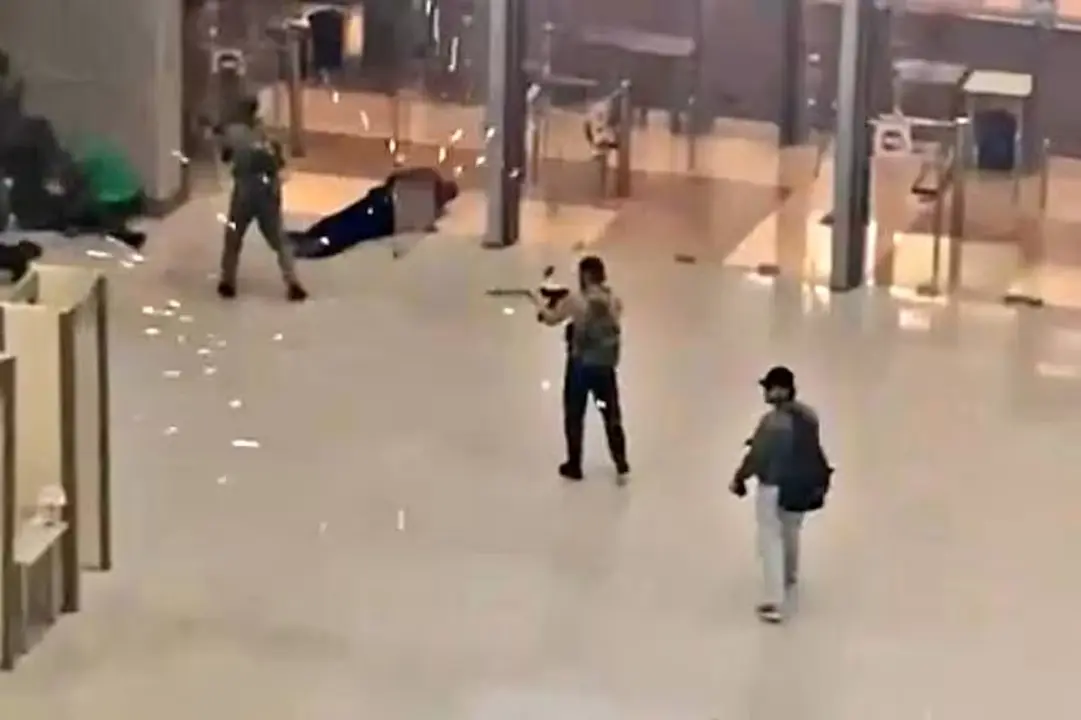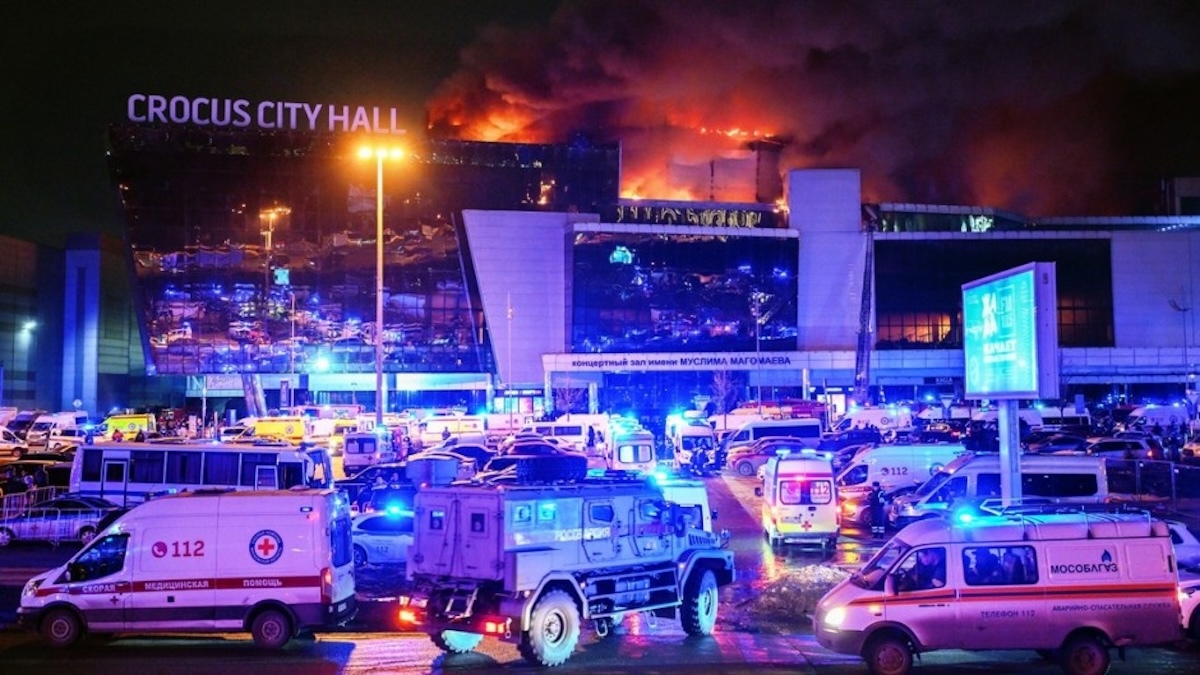Islamist terrorism against Russia terrorizing Ukraine

Nothing could be more logical than for Russia to claim, without distinction, solidarity and unanimous international condemnation of the terrorist attack against a crowded concert hall in Krasnogorsk, on the outskirts of Moscow, claimed shortly after it was committed by Daesh, the bloodthirsty self-sty Islamic State.
For those of us who abhor terrorism, among other things because we have been victims, direct witnesses or sufferers of the consequences of such attacks, there is no room for distinction. There is no such thing as good terrorism, they are all abominable, all the more so because their perpetrators are not averse to indiscriminate slaughter for the sake of a supposedly higher objective in their tormented brains.
As in so many other attacks, the dozens of dead, wounded and mutilated that this massacre will leave behind will become numbers in a statistic after some time, while those who are its direct victims will carry their tragedy throughout their lives, spreading their logical grief and bitterness to their closest environment. Russia, the Russian people, deserve, therefore, the solidarity and unreserved condemnation of the perpetrators of this tragedy, for having suffered this indiscriminate slaughter.
However, the immediate emotion aroused by this action of Daesh should in no way soften the analysis that the war of aggression that Russia is waging in Ukraine deserves. There it is intensifying its bombardments, both against civilian buildings, with the consequent number of victims, and also against civilian infrastructures.
Coincidentally, on the same day of the Daesh attack on Crocus City Hall, Russia launched the largest missile and drone attack to destroy industry and energy supply in Ukraine, depriving more than one million Ukrainians of electricity.
A destruction that increases a little more the desolate landscape of ruins and victims that Putin's aggression against Ukraine has been leaving day after day for more than two years now.
President Vladimir Putin's obsession with Ukraine led one of his main supporters, former President and former Prime Minister Dmitry Medvedev to accuse Ukraine of the attack and threaten it with an escalation of the war, including the physical elimination of its leaders, of course with President Volodymyr Zelensky at the head.
An excessive reaction to say the least, which amalgamates and assimilates any incident to a Ukraine which they claim does not exist as a sovereign and independent country, recognized by a European Union into which it aspires to be integrated.
The Russian leaders should perhaps have been more receptive to the warnings of the intelligence services of the United States and the United Kingdom, which on March 7 detected that "extremist elements had plans for imminent attacks on venues or demonstrations where there were large crowds of people, including musical concerts" in the Moscow region.
The always sharp and cutting spokeswoman of the Russian Foreign Ministry, Maria Zakharova, justified herself by blaming the Americans themselves: "If the United States has or had reliable data on the matter, they should immediately pass it on to the Russian side".
An excuse, after all, since the ever-feared FSB (successor of the KGB) knew from the very first moment of the aforementioned warning of the American intelligence to its citizens living in Russia.

On the other hand, this thunderous reappearance of Daesh in Moscow has greater repercussions for having happened in the populous Russian capital, since the Islamist organization has not ceased to extend its tentacles since it was defeated and dislodged from its bases in Syria and Iraq.
In fact, their activity and influence already extends widely throughout the Sahel strip, where the joint struggle with the local governments of French and American forces against them has been neutralized by the coups in Mali, Niger and Burkina Faso, where the new military juntas in power are proceeding to replace their former allied forces with the Russian forces of the transformed Wagner Company, formerly and now Putin's arm in an increasingly convulsed Sahel region.
In the fierce struggle to conquer territories, spheres of influence and even constitute a new world order, Russia should not forget that jihadist terrorism remains one of the greatest threats to international peace and security.
Not to make a common front against it may bring some immediate advantage to whoever commits the imprudence of allying with it, but he can rest assured that its objectives have nothing to do with the stability and prosperity to which the vast majority of peoples aspire, including those ruled by satraps who prefer to reign over a world in ruins.

